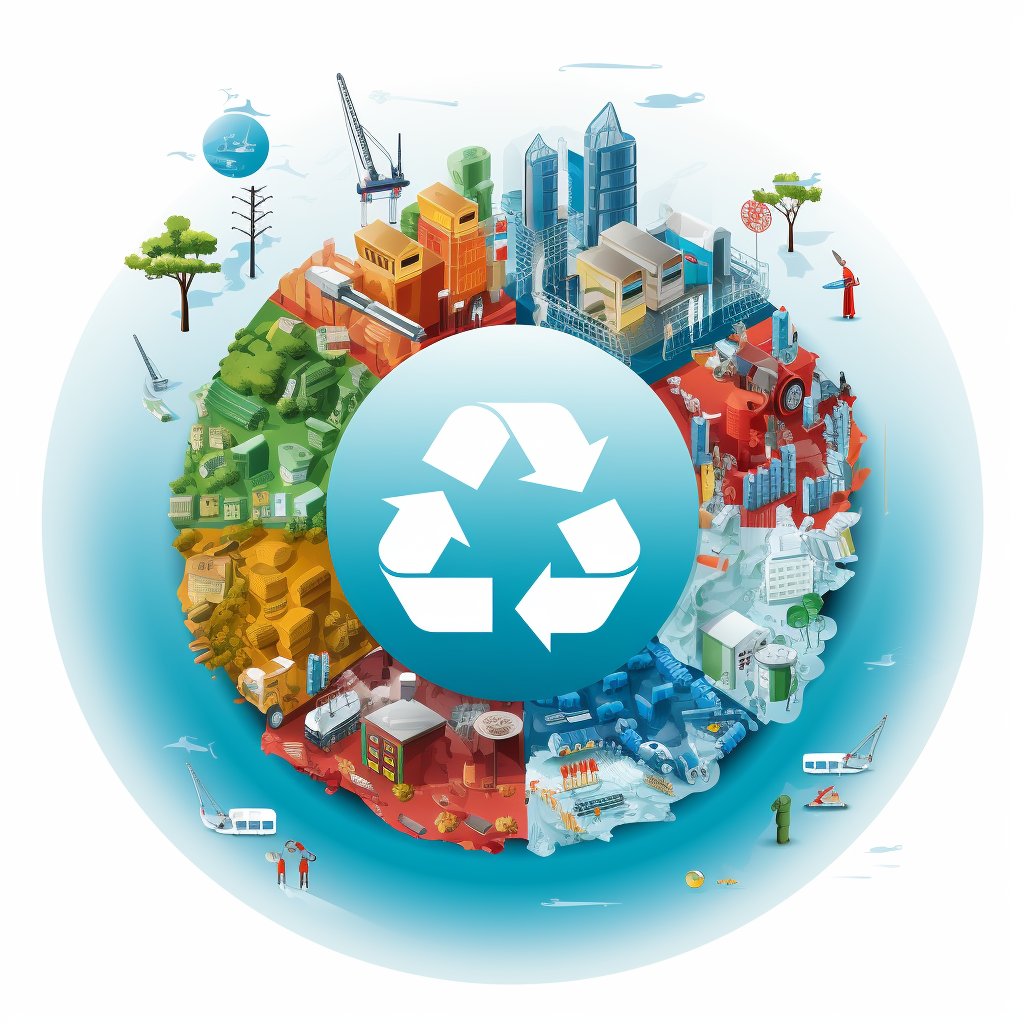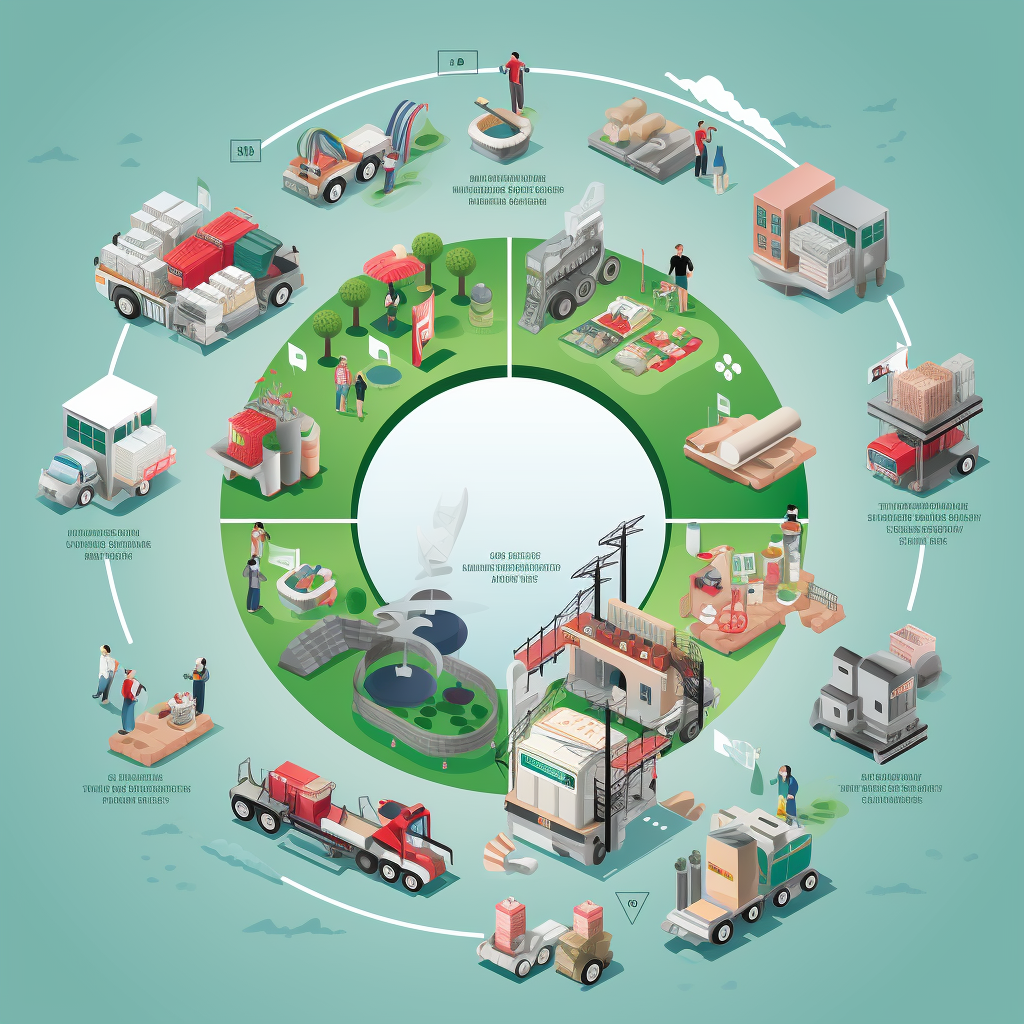Plastic recycling is a crucial process today, with an increasing demand for sustainable practices. The plastic industry has been one of the most significant contributors to environmental pollution, and the need for proper plastic waste management has never been more apparent.
Plastic waste is one of our planet’s most significant environmental challenges. As such, plastic recycling has become an essential process in mitigating the impacts of plastic waste on our environment. Professionals working in the plastics industry, recycling industry, and university students must be aware of the trends and impacts of plastic recycling.

Industrial Usage
One of the significant trends in plastic recycling is the increasing use of recycled plastic in industrial applications. Many companies are now using recycled plastic in their manufacturing processes, reducing their carbon footprint and saving costs. For instance, the automotive industry uses recycled plastic in car parts, such as bumpers, interior features, and dashboard components. Similarly, the packaging industry uses recycled plastic to produce boxes, bags, and containers. This trend is expected to continue, and more enterprises will likely adopt recycled plastic as an alternative to virgin plastic.
Application Areas
Another trend in plastic recycling is the emergence of new application areas for recycled plastic. One of the significant areas is construction, where recycled plastic is being used to make building materials. This trend has the potential to transform the construction industry and reduce the amount of plastic waste in landfills.
Consumer Product Examples
The consumer product industry has been quick to adopt plastic recycling. Many consumer products are now made from recycled plastic, such as water bottles. Some companies are producing eco-friendly sneakers made from recycled plastic bottles. Another example is outdoor furniture made from recycled plastic, which is durable, lightweight, and low maintenance. This trend is likely to continue.
Material Properties
Recycled plastic has been found to have different material properties than virgin plastic. This has led to the development of new recycling technologies that can improve the quality of recycled plastic. For example, mechanical recycling is a standard method that involves shredding and melting plastic waste. However, this method may lose material properties, such as strength and durability. New recycling methods, such as chemical recycling, are being developed to address this. This method breaks down plastic waste into its constituent components, which can be used to create new plastic products.
Future Recycling Trends
The future of plastic recycling looks promising, with many new technologies being developed. One such technology is pyrolysis, which involves heating plastic waste without oxygen. This process breaks down plastic waste into liquid fuel, which can be used to power industrial processes. These trends are likely to have a significant impact on the plastic recycling industry.
Environmental Trends:
One of the primary environmental trends in plastic recycling is the increasing concern about plastic waste and its environmental impact. This concern has led to new regulations and policies to reduce plastic waste, promote sustainable production, and increase the use of recycled materials. In Europe, for example, the European Union has set a target of recycling 55% of plastic packaging waste by 2030. This target is expected to be achieved through improved recycling practices, increased investment in recycling infrastructure, and more extended producer responsibility.
Another environmental trend in plastic recycling is the development of new technologies and processes that allow for more efficient and effective recycling of plastic waste. These technologies include chemical recycling, which breaks down plastics into their chemical components, allowing for the production of new materials. Other technologies include mechanical recycling, which involves shredding and melting plastic waste to produce new products.
Economic Trends:
In addition to environmental trends, there are significant economic trends in plastic recycling. One of the primary economic trends is the increasing demand for recycled plastic, which is driving the growth of the plastic recycling industry. This demand is being driven by factors such as the rising cost of virgin plastic, consumer demand for sustainable products, and government regulations.
Another economic trend in plastic recycling is the increasing investment in recycling infrastructure and technology. Governments, private companies, and international organisations are investing in recycling infrastructure to improve the efficiency and effectiveness of plastic recycling. For example, in 2020, the Ellen MacArthur Foundation launched a $2 million innovation prize to develop new technologies to improve plastic recycling.
Plastic recycling:
In addition to the trends and impacts of plastic recycling, it is essential to discuss how plastic recycling relates to recycling in general. Recycling is a crucial process that helps conserve natural resources, reduce landfill waste, and decrease pollution. Plastic recycling is one aspect of recycling that is particularly important due to the significant environmental impacts of plastic waste.
Plastic recycling helps conserve natural resources by reducing the need for virgin plastic. Virgin plastic production requires extracting and processing fossil fuels, which are non-renewable resources. By recycling plastic, we can reduce our reliance on these resources and reduce the carbon footprint of plastic production.
Recycling also helps reduce landfill waste by diverting materials from landfills. Plastic waste is particularly problematic in landfills because it does not decompose easily and can take hundreds of years to break down. By recycling plastic, we can reduce the amount of plastic waste in landfills and reduce the space needed for landfill waste.
Overall, plastic recycling is an essential aspect of recycling in general, and it is crucial to consider its role in the broader context of recycling. Professionals working in the recycling industry and university students should be aware of the environmental and economic impacts of plastic recycling and work to promote sustainable plastic recycling practices to ensure a more sustainable future for our planet.
Trends in plastic recycling:
Plastic recycling is a global issue that requires a multi-faceted approach to address environmental and economic concerns. The trends in plastic recycling, including the increasing demand for recycled plastic, the development of new recycling technologies, and the investment in recycling infrastructure, highlight the growing importance of plastic recycling worldwide. It is important for professionals working in the plastics industry, the recycling industry, and university students to stay informed about these trends and to contribute to efforts to promote sustainable plastic recycling practices worldwide.
Plastic recycling is an essential practice that helps reduce the environmental impact of plastic waste. The trends in plastic recycling discussed in this article highlight the growing use of recycled plastic in various industries, the emergence of new application areas, and the development of new recycling technologies. These trends are likely to continue and contribute to a more sustainable future. Professionals working in the plastics industry, recycling industry, and university students should stay up-to-date with these trends to be prepared for the future of plastic recycling.






